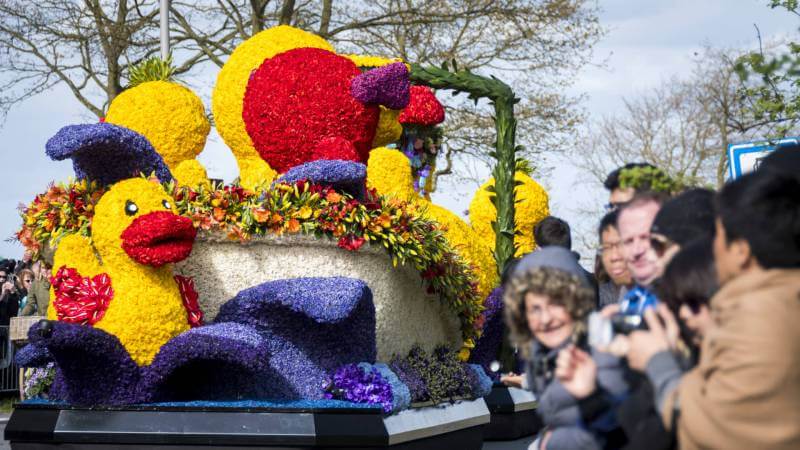The Dutch tradition of corsos – or parades of vehicles decorated with flowers and fruit , has been declared an International Intangible Cultural Heritage by UNESCO.
The parades are now registered on the Representative List of the Intangible Cultural Heritage of Humanity. The Committee belonging to the Unesco treaty on intangible heritage announced this on Wednesday.
The Netherlands has thirty parades. There is a great diversity; there are dahlia parades, allegorical processions with flowers, there is a fruit parade (in Tiel), there are flower days with mosaics and there is a paper parade.
The largest parades in the world are held in the Netherlands, but there are also very small ones. Some do not drive but sail and sometimes they are stationary panels.
Most parades are dahlia parades and are held in the period August-September, during the flowering time of the dahlia.

The parade is often a competition, which is an important motivation for the participating groups or neighborhoods to do everything they can to build the most beautiful car.
At the larger parades, the amount of work that goes into a single carriage is truly enormous.
The List of Intangible Cultural Heritage in Need of Urgent Safeguarding features elements of living heritage whose viability is under threat. It mobilizes international cooperation and assistance to strengthen the transmission of these cultural practices, in agreement with the concerned communities.
This List now numbers 71 elements.
Elements added to the Representative List of the Intangible Cultural Heritage, in order of inscription:
United Arab Emirates, Austria, Belgium, Croatia, Czechia, France, Germany, Hungary, Ireland, Italy, Kazakhstan, Republic of Korea, Kyrgyzstan, Mongolia, Morocco, Netherlands, Pakistan, Poland, Portugal, Qatar, Saudi Arabia, Slovakia, Spain, Syrian Arab Republic.
Netherlands — Corso culture, flower and fruit parades in the Netherlands.
Dating back to the late nineteenth century, a corso is an annual Dutch parade and competition of elaborate floats or boats decorated with flowers, fruit, vegetables and, in some cases, people in costumes. The practice creates a sense of social cohesion and solidarity, as groups of friends or entire neighbourhoods often spend months preparing floats up to 20 metres long and 10 metres high.
Corso culture is passed on through apprenticeships, school programmes and participation in the annual parade, which takes place on streets or in rivers and is typically accompanied by bands and theatre performances.
Source link –
https://en.unesco.org/news/43-elements-inscribed-unescos-intangible-cultural-heritage-lists














